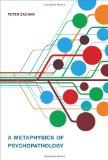April 14, 2014

Snakes, Sunrises, and Shakespeare: How Evolution Shapes Our Loves and Fears by Gordon H. Orians (University of Chicago Press, 2014)
(kindle ed.), (amazon.co.uk), (UK kindle ed.)
Book description from the publisher:
Our breath catches and we jump in fear at the sight of a snake. We pause and marvel at the sublime beauty of a sunrise. These reactions are no accident; in fact, many of our human responses to nature are steeped in our deep evolutionary past—we fear snakes because of the danger of venom or constriction, and we welcome the assurances of the sunrise as the predatory dangers of the dark night disappear. Many of our aesthetic preferences—from the kinds of gardens we build to the foods we enjoy and the entertainment we seek—are the lingering result of natural selection.
In this ambitious and unusual work, evolutionary biologist Gordon H. Orians explores the role of evolution in human responses to the environment, beginning with why we have emotions and ending with evolutionary approaches to aesthetics. Orians reveals how our emotional lives today are shaped by decisions our ancestors made centuries ago on African savannas as they selected places to live, sought food and safety, and socialized in small hunter-gatherer groups. During this time our likes and dislikes became wired in our brains, as the appropriate responses to the environment meant the difference between survival or death. His rich analysis explains why we mimic the tropical savannas of our ancestors in our parks and gardens, why we are simultaneously attracted to danger and approach it cautiously, and how paying close attention to nature’s sounds has resulted in us being an unusually musical species. We also learn why we have developed discriminating palates for wine, and why we have strong reactions to some odors, and why we enjoy classifying almost everything.
By applying biological perspectives ranging from Darwin to current neuroscience to analyses of our aesthetic preferences for landscapes, sounds, smells, plants, and animals, Snakes, Sunrises, and Shakespeare transforms how we view our experience of the natural world and how we relate to each other.
Google Books preview:
Comments (0)
- human evolution,new books,psychology
March 27, 2014

Future-Minded: The Psychology of Agency and Control by Magda Osman (Palgrave Macmillan, 2014)
(amazon.co.uk)
Book description from the publisher:
What drives us to make decisions?
Future-Minded explores the psychological processes of agency and control. If you’ve ever wondered why we think of coincidences as matters of fate rather than the result of the laws of probability, this book provides the answer. From memory and reasoning to our experiences of causality and consciousness, it unpicks the mechanisms we use on a daily basis to help us predict, plan for and attempt to control the future.
Future-Minded
* Features a wealth of real world examples to help you engage with this fast-developing area
* Provides clear analysis of psychological experiments and their findings to explain the evidence behind the theory
Thought-provoking and highly topical, Future-Minded is fascinating reading for psychology students studying cognition or consciousness, and for anyone interested in understanding how we try to determine the future.
See also: Author’s website, Sample chapter (pdf) from publisher
Comments (0)
- new books,psychology
March 25, 2014

A Metaphysics of Psychopathology by Peter Zachar (MIT Press, 2014)
(kindle ed.), (amazon.co.uk), (UK kindle ed.)
Book description from the publisher:
In psychiatry, few question the legitimacy of asking whether a given psychiatric disorder is real; similarly, in psychology, scholars debate the reality of such theoretical entities as general intelligence, superegos, and personality traits. And yet in both disciplines, little thought is given to what is meant by the rather abstract philosophical concept of “real.” Indeed, certain psychiatric disorders have passed from real to imaginary (as in the case of multiple personality disorder) and from imaginary to real (as in the case of post-traumatic stress disorder). In this book, Peter Zachar considers such terms as “real” and “reality” — invoked in psychiatry but often obscure and remote from their instances — as abstract philosophical concepts. He then examines the implications of his approach for psychiatric classification and psychopathology. Proposing what he calls a scientifically inspired pragmatism, Zachar considers such topics as the essentialist bias, diagnostic literalism, and the concepts of natural kind and social construct. Turning explicitly to psychiatric topics, he proposes a new model for the domain of psychiatric disorders, the imperfect community model, which avoids both relativism and essentialism. He uses this model to understand such recent controversies as the attempt to eliminate narcissistic personality disorder from the DSM-5. Returning to such concepts as real, true, and objective, Zachar argues that not only should we use these metaphysical concepts to think philosophically about other concepts, we should think philosophically about them.
Google Books preview:
Comments (0)
- new books,philosophy of mind,psychology,reality
March 18, 2014

The Secret Life of Sleep by Kat Duff (Atria Books/Beyond Words, 2014)
(kindle ed.), (amazon.co.uk)
Book description from the publisher:
It has become increasingly clear that our sleep shapes who we are as much as, if not more than, we shape it.
While most sleep research hasn’t ventured far beyond research labs and treatment clinics, The Secret Life of Sleep taps into the enormous reservoir of human experiences to illuminate the complexities of a world where sleep has become a dwindling resource.
With a sense of infectious curiosity, award winning author Kat Duff mixes cutting-edge research with insightful narratives, surprising insights, and timely questions to help us better understand what we’re losing before it’s too late.
The Secret Life of Sleep tackles the full breadth of what sleep means to people the world over. Embark on an exploration of what lies behind and beyond our eyelids when we surrender to the secret life of sleep.
Google Books preview:
See also: Book website
Comments (0)
- consciousness,new books,psychology






